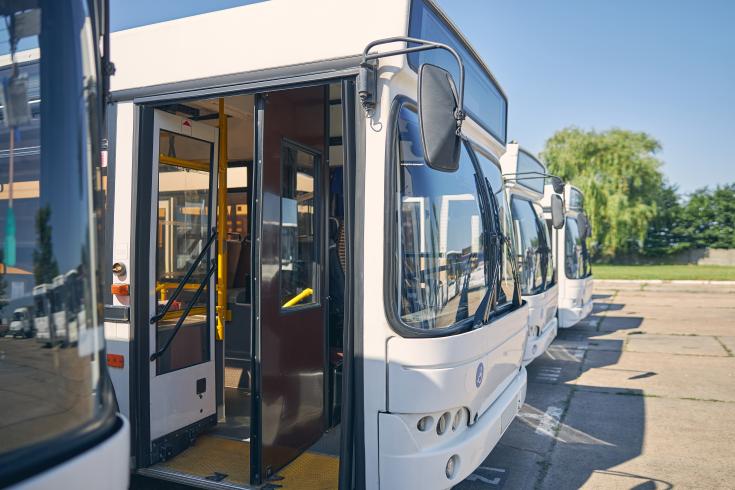PriMaaS – Enabling Mobility as a Service
Improving urban mobility and reducing its environmental and health impacts are increasingly prescient issues for policy-makers across Europe. Public authorities recognise their need to reduce carbon emissions, adapt to growing urban populations, tackle air quality and noise pollution, and improve accessibility for changing urban demographics. As such, new solutions are emerging to provide more equitable, convenient, and clean transport options, through public transport, vehicle sharing and active transport.
Mobility as a Service (MaaS) is recognised as a potentially important contributor to this transition. MaaS makes use of digital platforms to integrate different forms of transportation – public transport, vehicle sharing, taxis and rental offers – into a single service, which can be accessed on demand by the user. MaaS integrates these transport modes to be accessible via a single app or platform, and with a single payment/ticketing system, calculating routes and costs so users can decide on the best option, taking account of time, cost, and comfort.
The benefits of MaaS for consumers are numerous, being on-demand and flexible, and improving the convenience of transport services so that people do not need to own vehicles but can instead access them based on their own needs and agendas.
While MaaS is recognised as having high potential, challenges remain in relation to building ICT platforms, collecting and using data, and, most importantly, engaging stakeholders, building new business models, and organising providers and operators. Numerous mobility services already exist across Europe, but these often have low inter-modality, and securing cross-business collaboration is a major challenge.
PriMaas – Prioritising low carbon mobility services for improving accessibility of citizens
The Interreg Europe PriMaaS project (Prioritizing low carbon mobility services for improving accessibility of citizens), comprised of partners in Portugal, Italy, Romania, Germany, Sweden, Finland, and the United Kingdom, is exploring the issue of MaaS and how to promote equitable, citizen-focused, and multi-modal transport. The project looks to adapt regional and national policy instruments through both sharing experience and increasing collaboration at the regional level between transport authorities, operators, providers of mobility and consumer organisations.
PriMaas recognises policy-makers have a key role to play in supporting MaaS systems, setting up enabling frameworks and encouraging stakeholders to collaborate. The project has identified several good practices exploring transport apps, open data, on-demand services, and integrated ticketing to find what works and could inspire other regions.
One strong example is Finland’s Act on Transport Services (2017) which has been recognised as an international benchmark for its reform of the transport regulatory framework. The act views the transport system as a whole, relaxing regulation of the transport market, requiring open data, and promoting fairness of competition for technology-neutral digitalisation of transport services and new business models. Specifically, it requires all transport service providers to make their data openly available, including data on routes, prices, timetables, and accessibility, which must be made available in a machine-readable form via open interfaces. Services must also have interoperable systems and grant access to each other’s ticketing systems, which is a requirement in public procurement contracts.
“For MaaS, we need tools that prevent defragmentation at various levels looking at land use, physical infrastructure, information and connectivity between services, and coherence of political objectives”, explained PriMaaS lead partner Jorge Bandeira, from the University of Aveiro, Portugal. “At the policy level there is need for greater clarity in data sharing standards and clear definition of citizen-oriented incentives to choose low carbon modes. For that, we need very transparent environmental performance indicator targets.”
Multidimensional Indicator of MaaS Systems Performance
To assist in the development of Action Plans for the partners, the PriMaaS project is developing Baseline Assessment Reports which will assess the main drivers and barriers to the implementation of MaaS in each partner region, based on a SWOT assessment. It will explore the current integration of transport modes, existing and expected digital platforms, stakeholder motivation, technology infrastructure, demand-responsive solutions, policy frameworks and socio-political awareness. To build the Baseline Assessment Reports, the project has built a Multidimensional Indicator that can help stakeholders and users to assess technological performance and social benefits of MaaS.
Although claims regarding MaaS on social improvements, and emissions and congestion reductions are frequently made, it is difficult to quantify their benefits. Two types of indices are currently used; those focused on local context by describing a region’s readiness level, and those looking at the level of development of MaaS schemes. The Multidimensional Indicator, in comparison, looks at coverage (both geographic coverage and multimodality), functionality (considering the integration of services and IT personalisation), and finally sustainability (environment and social impacts), allowing for an assessment of the overall performance of MaaS platforms.
“From a practical point of view, it was difficult to distinguish the effective contribution to sustainability and social cohesion of Mobility platforms,” says Bandeira. “With the proposed multidimensional indicator we intend to contribute to improving the way stakeholders and users can benchmark technological performance and the societal contributions of the MaaS systems.”
By May 2022, PriMaaS will integrate software into the project website that users can download to calculate the Multidimensional Index for their own region. For more information visit the PriMaaS website.

